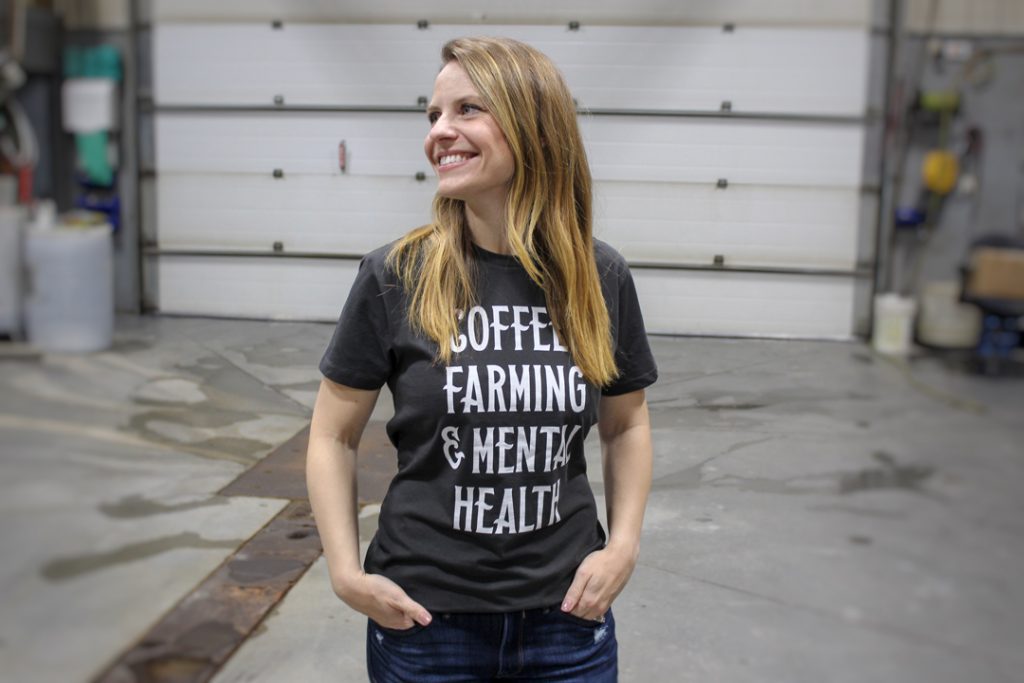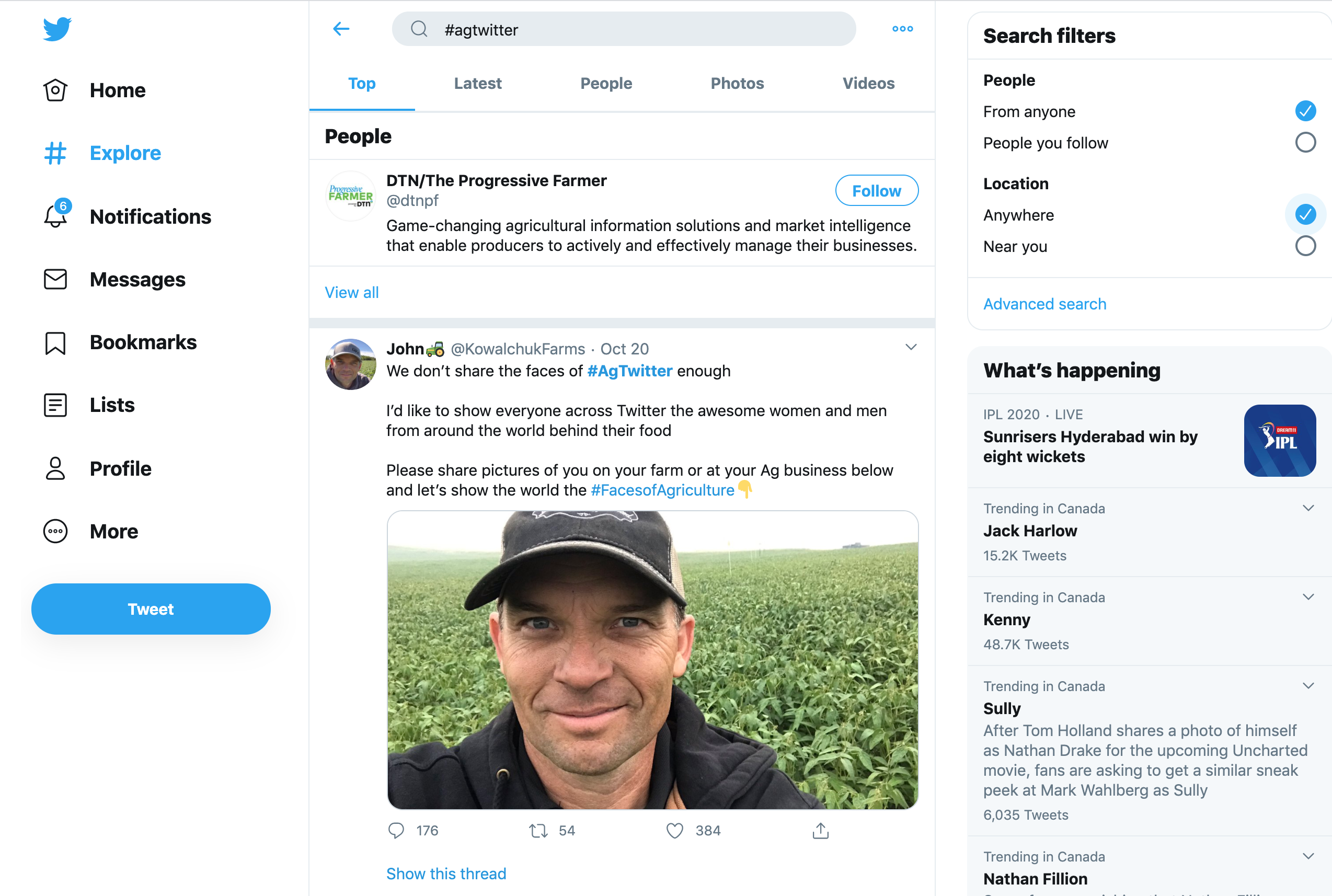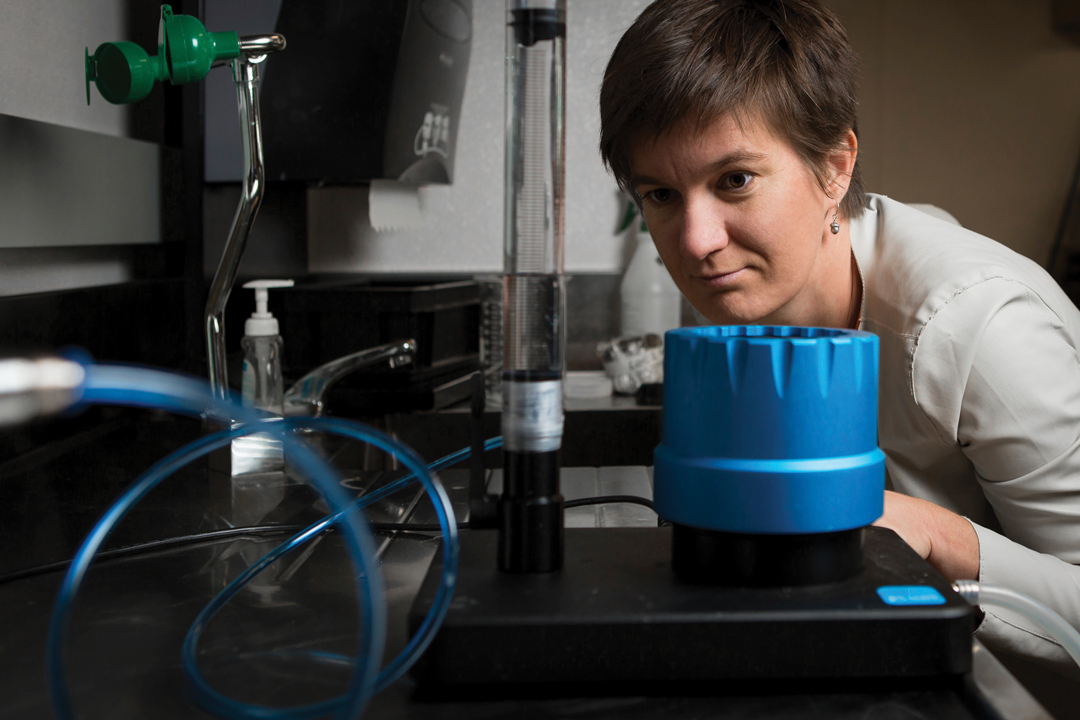AG TWITTER TAKES OFF
BY ALEXIS KIENLEN
As a farmer, #AgTwitter might well be a part of your time spent online each day. Across Canada and around the world, the ongoing Twitter conversations flagged by this hashtag influence farmers and ag industry professionals as well as consumers.
Michele Austin, head of policy at Twitter, recently wrote a blog post about her love of #AgTwitter. “I’m a fangirl of #AgTwitter,” said Austin. “I love #AgTwitter so much. It’s so vibrant, chatty and informative. I think this year over last year, the difference is really that people in the farming and ranching communities are reaching out through social media not only about the work they do, but how they live their lives and the struggles they might have,” she said. Notably, more non-farmers have been tuning into #AgTwitter for photographs and videos, she said.

For the uninitiated, Twitter conversations unfold in real time and users can express themselves in 280-character posts. These can include video footage, photographs, weblinks and emojis. Placed within Twitter posts, hashtags such as #AgTwitter, #plant20 and #harvest20 direct users to specific topics, in this case, agriculture. In Canada, in 2020, there has been a 12 per cent increase in ag conversation related to these three hashtags. Among the topics discussed by farmers and ranchers using the platform, mental health, isolation and adapting to COVID-19 have become more frequent talking points over the year.
Tweeting with the handle @KowalchukFarms, John Kowalchuk’s grain farm is located near Rumsey. Kowalchuk said he’s noticed an uptick in non-farmers among his followers over the past six months. He is now being followed by policy professionals, government employees, dietitians and others in food related positions. He’s also seen more engagement from industry and the corporate sector.
“More companies are wanting their employees to be more involved in social media. They’re not farmers, but they may still be involved in the ag industry,” he said. This is a change from about five to eight years ago, when all Kowalchuk’s followers were farmers. He said he gets a lot of interaction from all his followers whenever he posts a photo or video of life on the farm.
Also a Twitter veteran, Lesley Kelly farms grain near Watrous, SK and tweets as @lesleyraekelly. A director with the Saskatchewan Wheat Development Commission, Kelly is also one of four co-founders of Do More Ag, an organization that helps farmers find resources for mental health issues.
“When we started Do More Ag, we knew a lot of farmers were already talking on Twitter and it was the first social media that we focused on. What I love about Twitter is that it’s easier to have a conversation than on some of the other social media platforms. It’s easy to track and follow and pipe in,” she said.
“I thoroughly like to hear and see and watch and tweet about mental health. For me, it’s great to talk about it on that platform because there’s so much stigma. And also, to hear what people are doing, and what they think about mental health on the farm. It’s another avenue. If someone can see a tweet and think differently about mental health, that’s a good thing,” she said.

Alberta Wheat Commission vice chair Hannah Konschuh farms near Cluny and tweets as @HJKizz. She uses Twitter to stay connected. “I have people I consider good friends who I initially connected with because of the conversations we were having on #AgTwitter. I love the positive side of the things we share.”
Konschuh also uses Twitter to find out about new crop varieties. “I learned quite a bit on there. I’m experimenting with growing a couple of new crops, so I follow farmers who already grow the crops I’m interested in,” she said. “It’s important feedback you’re not going to get from a salesperson,” she added.
While all three farmers use #AgTwitter to discuss important farming issues and connect with their peers, they agree it also helps them to network and locate information that assists them in doing business.







Comments